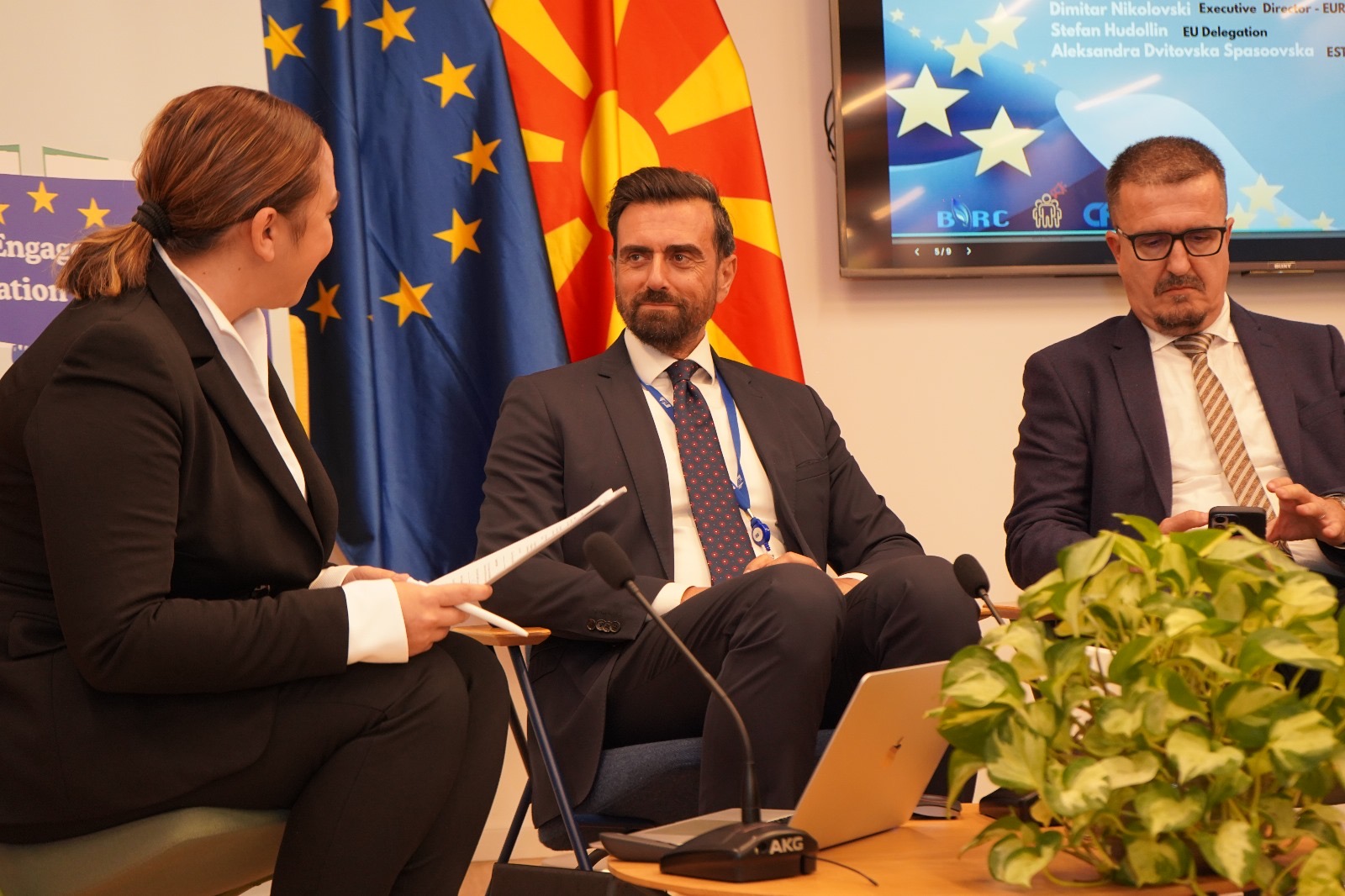Young people across the Western Balkans are eager to participate in the European integration process, but institutional and political resistance continues to keep them at the margins, participants said at a regional conference in Skopje on Monday.
The closing conference of the project “Youth Engagement for the Europeanisation of the Balkans” brought together young activists and civil society representatives from Kosovo, North Macedonia and Montenegro at Europe House in Skopje to discuss the role of youth in shaping the region’s EU path.
“There is strong interest among young people to be involved in the European integration process. However, institutions and political parties — the key actors in our system — lack the will to genuinely engage them, trust them, and give them real responsibility,” said Xhelal Neziri, president of the Balkan Institute for Regional Cooperation (BIRC).
“This situation is discouraging. With corruption widespread and the EU process stagnating, we should learn from the experience of our neighbours like Montenegro, which has long been in this process. The lack of political will makes integration slow and frustrating. Many young people no longer want to wait for their country to join the EU — they want to become part of it themselves, by studying, working or living abroad.”
The initiative is financed by the Western Balkans Fund and jointly implemented by BIRC (North Macedonia), the Centre for Innovation and Development (CFID) from Kosovo, and the Montenegrin NGO NVO Glas.
Representatives from the three organizations presented their findings on youth inclusion in EU integration processes.
Drenusha Latifi of CFID Kosovo said that young Kosovars still face barriers that prevent them from influencing decision-making or transitioning easily into the job market.
“The transition from school to the labor market is the toughest stage. Many students finish secondary education without the skills employers demand. Job quality is uneven, and too many graduates move from one temporary or unpaid job to another, or wait endlessly for an opportunity in the public sector,” Latifi said.
“The share of youth who are neither in education, employment nor training remains high, fueling frustration and prompting some to consider leaving the country — precisely when Kosovo needs their energy and ideas at home.”
She added that young women and marginalized groups — such as Roma, Ashkali and Egyptians, or youth in rural areas — face additional hurdles due to cultural expectations, limited services, and discrimination.
Lorik Idrizi, program director at BIRC, said meaningful youth inclusion is essential for democratic consolidation and faster EU accession.
“Institutional mistrust, lack of transparency, limited resources and the instrumentalization of youth structures are key barriers,” Idrizi said.
“Our study proposes concrete policy recommendations to build participatory mechanisms, strengthen youth organizations and foster inter-institutional cooperation. Young people should be repositioned from passive beneficiaries to active co-creators of the country’s European future.”
Milica Dedić, executive director of NVO Glas in Montenegro, said youth participation is often merely “decorative.”
“Some 85.7% of respondents clearly distinguish between active and decorative participation. Active participation means youth influence decision-making and co-create policies. Decorative participation means they are present at meetings or campaigns but without real power. This not only demotivates them but weakens democracy itself,” Dedić said.
“Young people must be treated as partners, not photo props.”
The three organizations signed a memorandum of cooperation to jointly apply for future regional projects promoting Europeanisation.
The project’s activities have been held in Podgorica, Pristina and Skopje — the capitals of the three participating countries.



